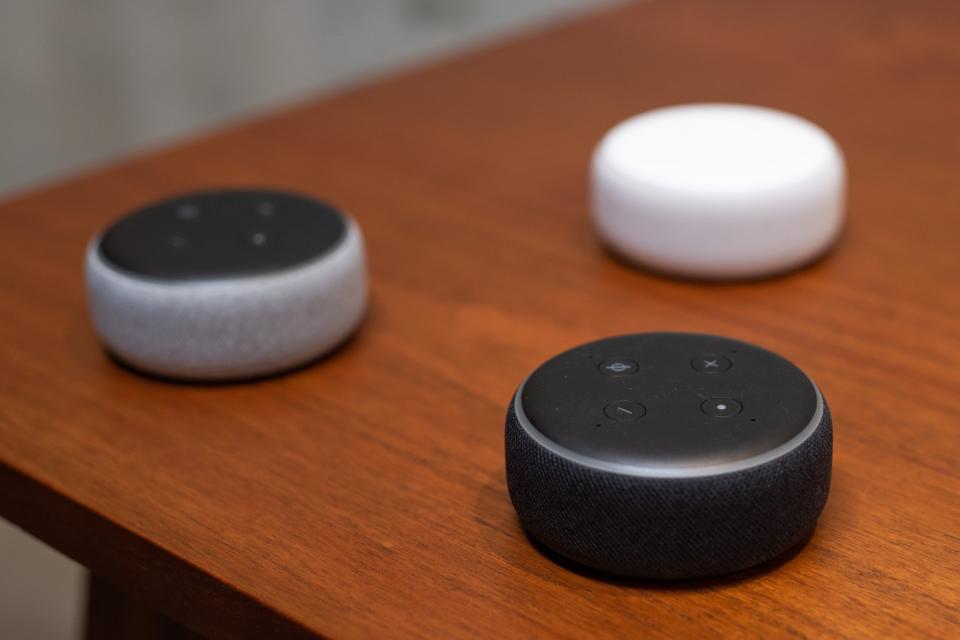Amazon readies Alexa for its second act—but it has an uphill battle

Hello and welcome to Eye on AI.
Before ChatGPT could talk, there was Alexa. The decade-old Amazon voice assistant, however, never fully delivered on its potential and was useful for little more than setting a kitchen timer or telling you the weather.
But now with the full force of generative AI at its disposal, Amazon is looking toward Alexa’s second act. Sometime this year, the company plans to launch an overhauled, “more conversational” version of Alexa, sources told CNBC. Along with new and improved generative AI-powered capabilities, Amazon also plans to introduce a new business model for Alexa. Rather than be included with the company’s Prime subscription, Alexa will require its own monthly subscription.
While Alexa has previously dominated voice assistant competitors, including Apple’s Siri and Google Assistant, the recent steady release of powerful generative AI-powered chatbots has made clear this space is newly up for grabs. Amazon has already sold more than 500 million Alexa-enabled devices, according to Amazon, which could give the company a leg up.
At the same time, Amazon hasn’t exactly shown itself to be an AI disrupter—the company is certainly supporting the AI boom via Amazon Web Services and has hitched its wagon to AI startup Anthropic by investing billions of dollars in it, but it hasn’t released any leading AI models that would put it in the same realm as OpenAI, Google, or Meta.
A generative AI-powered Alexa could be Amazon’s opportunity to finally get in on the AI boom, not to mention finally deliver on the true vision of Alexa. But it faces real challenges: its own lagging position in AI, technical hurdles and runaway compute costs still plaguing the industry, and fierce competition from other tech giants that are all vying to deliver the best AI assistant experience.
Despite the recent controversy around the Scarlett Johansson-esque voice for ChatGPT, OpenAI put a stake in the ground with its demo of the latest version of its product last week. Google has also rolled out voice support for its Gemini model. And next month at its annual developers conference, Apple is expected to unveil a new generative AI-powered, more conversational Siri. Apple faces many of the same challenges as Amazon in terms of its AI position, but the company is reportedly negotiating with Google to bring its leading Gemini model to the iPhone.
“A lot of us have had this vision for what a powerful assistant can be, but we were held back by the underlying technology not being able to serve that goal,” Google CEO Sundar Pichai said on the Decoder podcast this week. “I think we have a technology that is better able to serve that. That’s why you’re seeing the progress again. I think that’s exciting.”
If these products succeed, they could completely change how we interact with technology, get information, organize our lives, and use products and services. The New York Times reported that Apple executives worry new AI technology could displace its iPhone’s iOS software and threaten its dominance over the smartphone market. With an ecosystem of AI agents, we may no longer need apps or the app store.
That’s the exact future wearable maker Humane was betting on with its Ai Pin, though it’s clear we’re still quite a ways off. The Ai Pin was designed to speak out loud to people wearing it and handle many of the same tasks as Alexa and Siri, but it failed to deliver. Gadget reviewer Marques Brownlee dubbed it “the worst product I’ve ever reviewed…for now”, and yesterday, Bloomberg reported that Humane is seeking to be acquired after the product’s rocky launch.
The dream of finally delivering a true AI assistant feels closer than ever before, and at the same time, still very far away. In OpenAI’s demo last week, Sky very much sounded like a real person—both in terms of its voice and how it answered questions (and as always, it’s important to remember that we can only trust a demo so much). But sounding like a real person is only half the battle. These models are still limited by the fact that they’re confidently wrong all the time. As I continue to test ChatGPT, I am floored by how consistently wrong it is. I feel like I can’t trust a word it says.
“I wonder if the intelligence is increasing at the same rate as the facility with language,” Nilay Patel, editor-in-chief of The Verge, said to Pichai during the Decoder conversation. “I kind of don’t see it, to be perfectly honest. I see computers getting much better at language and actually in some cases getting dumber.”
And with that, here’s more AI news.
Sage Lazzaro
sage.lazzaro@consultant.fortune.com
sagelazzaro.com
This story was originally featured on Fortune.com

 Yahoo Finance
Yahoo Finance 